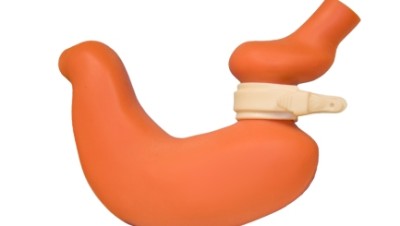What are the Pros and Cons of Getting a Gastric Band?
 Bariatric or weight loss surgery is often recommended for people whose wellbeing is at risk of their obesity, as well as the severe wellness problems that can develop from excessive weight gain. Having a gastric band fitted is one way you can have this type of surgery. Surgeons make tiny incisions in your abdomen, through which they place the device, a silicone belt or collar, around the upper part of your stomach. This limits your food intake with a controlled and adjustable stoma without stapling, as the band forms a 15cc small pouch, roughly the size of a golf ball, that can be inflated or deflated at any time after the procedure. The operation lasts for 30-60 minutes and is performed under general anaesthesia.
Bariatric or weight loss surgery is often recommended for people whose wellbeing is at risk of their obesity, as well as the severe wellness problems that can develop from excessive weight gain. Having a gastric band fitted is one way you can have this type of surgery. Surgeons make tiny incisions in your abdomen, through which they place the device, a silicone belt or collar, around the upper part of your stomach. This limits your food intake with a controlled and adjustable stoma without stapling, as the band forms a 15cc small pouch, roughly the size of a golf ball, that can be inflated or deflated at any time after the procedure. The operation lasts for 30-60 minutes and is performed under general anaesthesia.
So why would you consider gastric band surgery? Firstly, your stomach isn’t stapled but has a carefully calibrated pouch and stoma size. The pouch can be adjusted to your needs after surgery with no further operation to adjust the stoma. Another advantage is that your stomach isn’t cut at all, and the doctors do everything through small incisions in the belly which makes the surgery less invasive and time consuming. You only have a short hospital stay, and the whole thing is fully reversible if there are any problems or it just doesn’t work for you. Also, research has shown that gastric banding provides just as good results as other surgeries and weight loss methods, and is ideal for people who are morbidly obese and have related co-morbidities such as diabetes and hypertension.
But what else do you need to consider? First and foremost, a gastric band procedure does not give you a free pass to eat whatever you like and never exercise. You may need to work with a dietician and plan healthy meals that give you enough protein, vitamins, and minerals while you are losing weight. Even with a healthy diet, you probably will need to take vitamin and mineral supplements for the rest of your life. Also, the surgery itself comes with risks of bleeding and infection to the incisions, obstruction, band slippage, access port problems, oesophageal dilation and poor nutrition. This is why surgery is only generally an option for you if you have a BMI of 40 or above, and your wellbeing is more at risk from your weight than from the potential risks of surgery.
Therefore, weight loss surgery is not a magic cure, but an option when regular methods of diet and exercise aren’t working and there are complications that affect your health and quality of life. It is not a choice to be made lightly, so consult your doctor for more information.


Comments are closed.